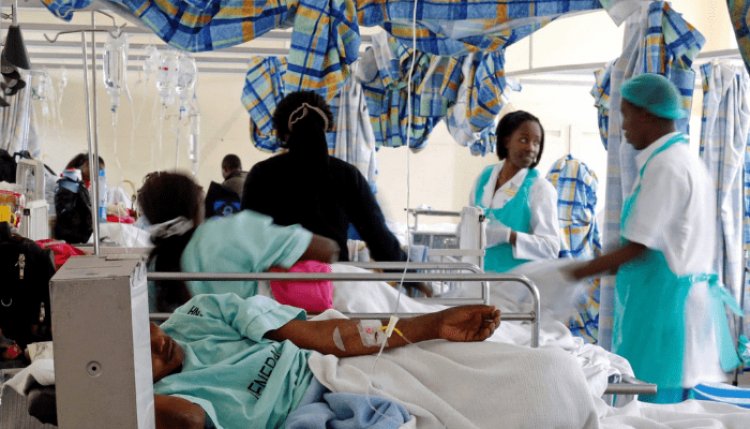The federal government has attributed nutrition deficiency across the country to inadequate funding and weak data systems as it restates its commitment to provide aid to children under the age of five, women of reproductive age, alongside vulnerable groups in the country.
This was disclosed by the Permanent Secretary, Federal Ministry of Budget and Economic Planning, Dr Emeka Obi. He was speaking at the Nigeria Health Watch 2024 Nutrition Consultative Forum with the theme:
“Addressing Coordination Bottlenecks in Nigeria for Improved Nutrition Outcomes,”.
The government commitment followed earlier malnutrition data highlighted by the Community Engagement Coordinator of Nigeria Health Watch, Ms Adanna Opara. According to Opara, malnutrition is still an issue of public health concern in Nigeria, which requires a multisectoral approach and effective multi-sectoral coordination.
Opara noted that malnutrition issues in the country include undernutrition, which presents in the form of stunting, wasting, and underweight, while overnutrition issues include overweight, obesity, and diet-related non-communicable diseases (NCDs).
Micronutrient deficiencies, including vitamin A, folic acid, and minerals like iron, zinc, and iodine, are also significant concerns as Nigeria’s current exclusive breastfeeding rate falls below the targets set by global and national bodies, underscoring the need to address these challenges.
According to her, “The 2025 National Nutrition Target seeks to achieve a 50 per cent reduction in the proportion of people who suffer from hunger and malnutrition, increase the rate of exclusive breastfeeding in the first 6 months to 65 per cent against the current 34 per cent, reduce the rate of stunting among under-five children to 18 per cent, reduce childhood wasting, including Severe Acute Malnutrition (SAM), to 10 per cent, reduce anaemia among pregnant women to 40 per cent, and reduce the prevalence of diet-related noncommunicable diseases by 25 per cent”.
Addressing the data, Obi blamed the deficiency on insufficient alignment between institutional programmes, gaps in communication among ministries, and limited funding of nutrition programmes continue to impede progress despite numerous interventions launched by government agencies and international partners, fragmented policies and resource gaps.
According to him, the government is implementing food and nutrition-related interventions under Nigeria’s Medium-Term National Development Plan and Agenda 2050 and with the National Council on Nutrition (NCN) motion, barriers against adequate and affordable nutrition would be addressed.
He said, “By bringing together diverse voices and expertise, the programme will foster the collaboration needed to ensure that Nigeria can effectively combat malnutrition and food insecurity.
“It will achieve this by paving the way for improved public health and economic growth, with a range of stakeholders, the event generated actionable recommendations to address coordination gaps.
“These solutions could lead to better nutrition policies, increased budgetary allocation, and more sustainable outcomes for Nigeria’s food security agenda.”
Assuring accessible quality nutrition, the United Nations Children’s Fund (UNICEF) Chief of Nutrition, Nigeria, Ms. Nemat Hajeebhoy, noted the need for evidence-informed policies in shaping the country’s nutrition strategies.
Hajeebhoy advocated for a strong data system, which is critical to identifying gaps and driving impactful interventions, and stressed the need for effective coordination to advance nutrition efforts in Nigeria.












